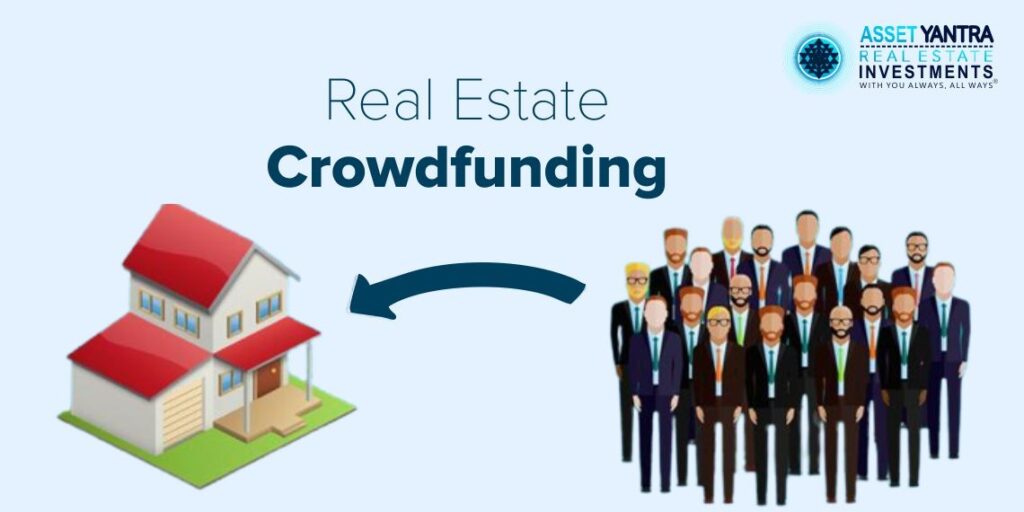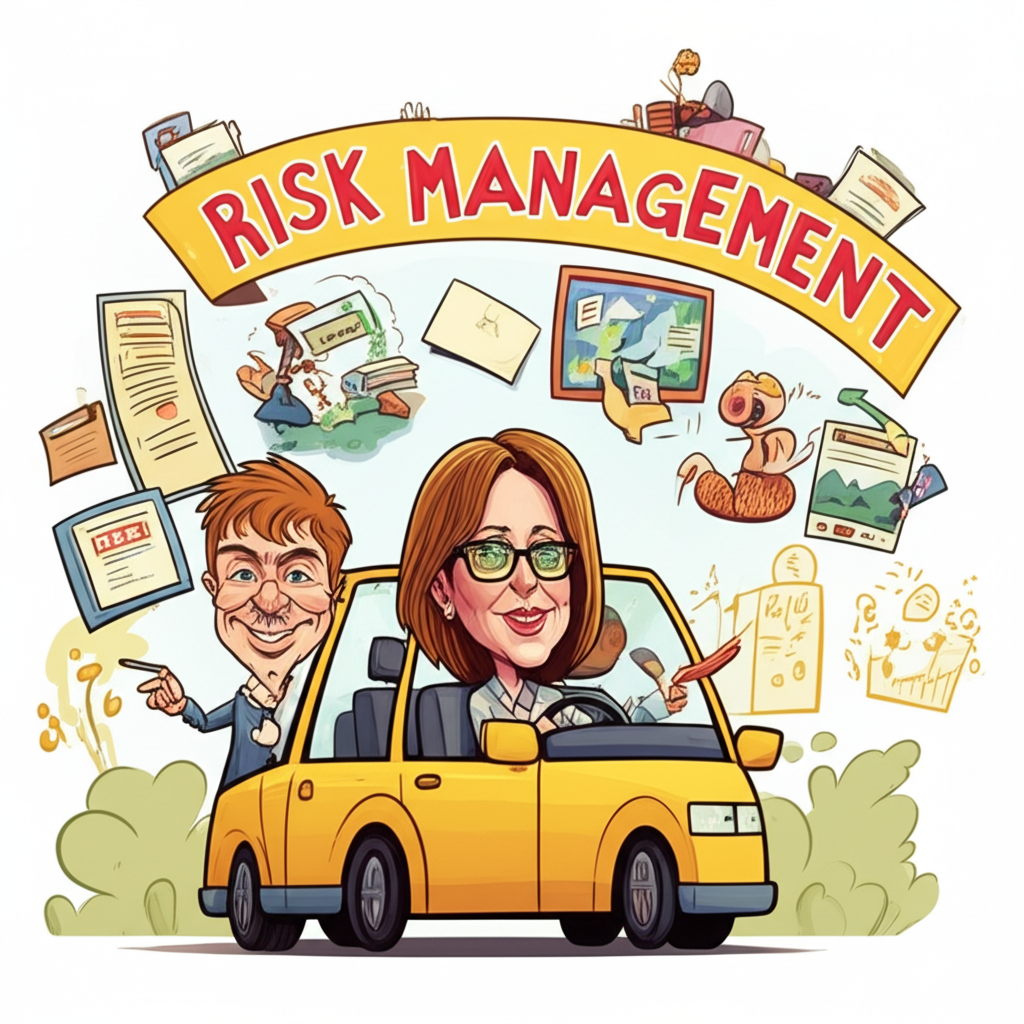
Crowdfunding Real Estate: A New Way to Invest & Grow Your Wealth
For generations, real estate has been a cornerstone of wealth creation, offering stability and impressive returns. However, the traditional path to real estate investment often came with significant barriers: large capital requirements, complex management, and a lack of liquidity. But what if there was a way to tap into this lucrative market without buying an entire building or becoming a landlord?
Enter real estate crowdfunding. This innovative approach is democratizing property investment, allowing everyday investors to participate in large-scale real estate projects with smaller amounts of capital. It’s truly a new frontier for building wealth.
In this comprehensive guide, we’ll break down everything you need to know about real estate crowdfunding, from how it works to its benefits, risks, and how you can get started.
What is Real Estate Crowdfunding?
At its core, real estate crowdfunding is the practice of pooling money from a large number of individual investors to fund a real estate project. Instead of a single wealthy investor or institution funding an entire development, hundreds or even thousands of people contribute smaller amounts, collectively reaching the required capital.
Think of it like a group of friends pooling their money to buy a pizza. Individually, none of them might be able to afford the whole pizza, but together, they can. In this case, the "pizza" is a commercial building, an apartment complex, a development project, or even a portfolio of single-family homes.
These investments are typically facilitated through online platforms that connect real estate developers and operators (called "sponsors") with potential investors. These platforms act as the middleman, handling the legal, financial, and administrative aspects of the investment.
How Does Real Estate Crowdfunding Work?
The process of investing in real estate through crowdfunding is surprisingly straightforward, especially for beginners. Here’s a general step-by-step breakdown:
- Project Sourcing & Vetting: Real estate crowdfunding platforms don’t just list any project. They have teams that rigorously vet potential real estate opportunities and the sponsors behind them. This due diligence process ensures that only promising, well-structured deals are presented to investors.
- Project Listing: Once a project passes the platform’s vetting process, it’s listed on their website. The listing provides detailed information, including:
- Type of property (e.g., residential, commercial, industrial)
- Location
- Investment strategy (e.g., value-add, ground-up development)
- Financial projections (expected returns, hold period)
- Detailed information about the sponsor/developer
- Minimum investment amount
- Investor Review & Selection: As an investor, you browse the available projects, reviewing the offering documents, financial models, and sponsor information. You choose the project(s) that align with your investment goals and risk tolerance.
- Investment & Funding: Once you decide to invest, you commit your desired amount (meeting the minimum investment). Your funds, along with those from other investors, are pooled together. The platform then transfers the aggregated funds to the real estate sponsor.
- Project Management & Reporting: The real estate sponsor manages the property or development project. The crowdfunding platform typically provides regular updates on the project’s progress, financial performance, and distributions (payments to investors).
- Returns & Exit: Depending on the investment type (which we’ll discuss next), you’ll receive returns through rental income, interest payments, or a share of the profits when the property is sold or refinanced. At the end of the investment term (the "exit"), your initial capital is returned, along with any remaining profits.
Types of Real Estate Crowdfunding Investments
Understanding the different ways you can invest is crucial, as each comes with a different risk and return profile. The two primary types are:
1. Equity Crowdfunding
- What it is: When you invest in equity crowdfunding, you are buying a small ownership stake in the property or the entity that owns it. You become a part-owner, similar to buying shares in a company.
- How you make money:
- Rental Income: You receive a share of the rental income generated by the property (often distributed quarterly or monthly).
- Appreciation: When the property is eventually sold, you receive a share of the profits from the increase in its value.
- Risk/Reward: Generally considered higher risk but also offers the potential for higher returns, as you benefit directly from the property’s success and appreciation.
- Example: Investing in an apartment complex that aims to increase rents and eventually sell for a higher price.
2. Debt Crowdfunding
- What it is: In debt crowdfunding, you are essentially acting as a lender to the real estate sponsor. You loan money for a specific project, and in return, you receive interest payments, similar to a bond or a mortgage.
- How you make money:
- Interest Payments: You receive regular interest payments on your loan (often monthly or quarterly) until the loan is repaid.
- Risk/Reward: Generally considered lower risk than equity, as your returns are fixed interest payments and don’t depend on the property’s appreciation. However, your upside is limited to the agreed-upon interest rate.
- Example: Lending money to a developer building new homes, receiving 8% interest annually until the homes are sold and the loan is repaid.
Some platforms also offer Preferred Equity, which is a hybrid of debt and equity, offering a fixed preferred return before the equity investors get paid, but also potentially participating in some upside.
Why Consider Real Estate Crowdfunding? Benefits for Investors
Real estate crowdfunding has rapidly gained popularity due to its compelling advantages:
- Lower Minimum Investments: This is arguably the biggest game-changer. Instead of needing hundreds of thousands or millions of dollars, you can often start with as little as $500, $1,000, or $5,000. This opens up real estate to a much wider audience.
- Diversification: You can easily spread your investment across multiple properties, property types (residential, commercial, industrial), and geographic locations. This reduces your risk compared to putting all your money into a single property.
- Passive Income Potential: Once you invest, the platform and sponsor handle all the day-to-day management, tenant issues, and maintenance. You receive distributions (income) without lifting a finger, making it a truly passive investment.
- Access to Institutional-Quality Deals: Crowdfunding platforms often provide access to large-scale commercial or multi-family projects that were previously only available to large institutions or accredited investors.
- Transparency & Due Diligence: Reputable platforms conduct extensive due diligence on projects and sponsors, providing investors with detailed information, financial projections, and ongoing performance reports.
- Geographic Flexibility: You’re no longer limited to investing in properties only within your local area. You can invest in high-growth markets across the country without ever leaving your home.
- Potential for Attractive Returns: Many real estate crowdfunding projects aim for competitive returns that can outperform traditional stock market investments, especially when considering the potential for stable income and appreciation.
Potential Downsides & Risks to Be Aware Of
While highly appealing, real estate crowdfunding is not without its risks. It’s crucial to understand these before investing:
- Illiquidity: Real estate investments, by nature, are not easily convertible to cash. Most crowdfunding deals have a "hold period" (e.g., 2-7 years) during which your capital is locked in. There’s generally no secondary market to sell your stake early.
- Loss of Capital: As with any investment, there’s no guarantee of returns, and you could lose some or all of your invested capital if the project underperforms, the market declines, or the sponsor fails.
- Platform Risk: If the crowdfunding platform itself goes out of business, it could complicate the management and distribution of your investments, though measures are usually in place to mitigate this.
- Market Fluctuations: Real estate values can go down as well as up. Economic downturns, interest rate hikes, or local market issues can negatively impact property values and rental income.
- Lack of Control: As a passive investor, you have no direct control over the property’s management, decisions, or the sponsor’s execution. You are relying entirely on the expertise and integrity of the sponsor and the platform.
- Fees: Platforms and sponsors charge various fees, which can include origination fees, asset management fees, and disposition fees. These can eat into your overall returns.
- Tax Implications: Income from real estate crowdfunding can have specific tax implications, often involving K-1 forms. It’s wise to consult with a tax professional.
Who Can Invest in Real Estate Crowdfunding? (Accredited vs. Non-Accredited)
Historically, many private real estate investments were restricted to "accredited investors" – individuals or entities meeting certain income or net worth thresholds (e.g., $200,000 annual income for two consecutive years, or a net worth over $1 million excluding primary residence). This was due to SEC regulations designed to protect less sophisticated investors from high-risk, complex investments.
However, recent changes in SEC regulations, particularly the JOBS Act of 2012 (specifically Regulation Crowdfunding (Reg CF) and Regulation A+ (Reg A)), have opened up real estate crowdfunding to non-accredited investors (everyday individuals).
- Accredited Investor Platforms: These platforms often offer a wider range of investment opportunities, potentially larger deals, and sometimes higher target returns, but they require you to meet the strict financial criteria.
- Non-Accredited Investor Platforms: These platforms cater to the general public, allowing anyone to invest within certain limits (typically based on your income or net worth). While the investment options might be more limited or have lower maximums per investor, they provide crucial access to this asset class.
It’s important to check a platform’s specific requirements before signing up.
Choosing the Right Real Estate Crowdfunding Platform
With a growing number of platforms available, selecting the right one is a critical step. Consider these factors:
- Regulatory Compliance & Security: Ensure the platform is registered with the SEC and complies with relevant regulations. Look for strong security measures to protect your personal and financial data.
- Track Record & Transparency: How long has the platform been operating? What is their historical performance? Do they provide clear, comprehensive information about their deals, fees, and past projects?
- Investment Types & Strategies: Does the platform offer equity, debt, or both? Do their typical projects align with your investment goals (e.g., income-focused, growth-focused, specific property types)?
- Due Diligence Process: Understand how thoroughly the platform vets its sponsors and projects. A robust due diligence process is paramount.
- Fees: Be clear on all fees charged by the platform and the sponsor. These can impact your net returns significantly.
- Minimum Investment: Does their minimum investment amount fit your budget?
- Investor Support & Education: A good platform will offer resources, customer support, and educational materials to help you understand the investments.
- User Experience: Is the platform easy to navigate, with clear dashboards and reporting?
Some popular platforms to research (this is not an endorsement, merely examples): Fundrise, CrowdStreet, RealtyMogul, PeerStreet, Yieldstreet, DiversyFund.
Getting Started with Real Estate Crowdfunding
Ready to explore this new investment avenue? Here’s how to begin:
- Educate Yourself: You’re already doing it! Continue researching, read reviews, and understand the nuances of real estate investing and crowdfunding.
- Define Your Investment Goals: Are you looking for passive income, long-term appreciation, or diversification? How much risk are you comfortable with?
- Assess Your Finances: Determine how much you are willing and able to invest without impacting your financial security. Remember the illiquidity aspect.
- Choose a Platform: Based on your goals, risk tolerance, and accredited status, select one or two reputable platforms to start with.
- Create an Account: Sign up, complete identity verification, and link your bank account.
- Start Small & Diversify: For your first investment, consider starting with a lower amount to get a feel for the process. As you become more comfortable, diversify your investments across multiple projects, platforms, or property types to spread risk.
- Monitor Your Investments: Regularly check your dashboard for updates, financial reports, and distributions.
- Consult Professionals: Consider speaking with a financial advisor and a tax professional to understand how real estate crowdfunding fits into your overall financial plan and its tax implications.
Is Real Estate Crowdfunding Right for You?
Real estate crowdfunding offers an exciting bridge for investors who want to tap into the power of real estate without the traditional headaches. It’s a fantastic option for:
- Individuals looking for passive income streams.
- Investors seeking to diversify beyond stocks and bonds.
- Those who want to invest in real estate but lack the large capital or time for traditional methods.
- Anyone interested in gaining exposure to different property types or markets they couldn’t otherwise access.
However, it’s not a get-rich-quick scheme and carries inherent risks. A thoughtful, informed approach, coupled with a clear understanding of your financial goals, will be your best guide.
Conclusion: Unlock the Potential of Real Estate
The digital age has transformed countless industries, and real estate investment is no exception. Crowdfunding has broken down the barriers that once made real estate investing an exclusive club, opening its doors to millions of everyday individuals.
By pooling resources and leveraging innovative online platforms, you can now own a piece of income-generating properties or participate in exciting development projects, all from the comfort of your home. As with any investment, due diligence and a clear understanding of the risks are paramount. But for those ready to explore new frontiers in wealth building, real estate crowdfunding truly represents a new, accessible, and potentially highly rewarding way to invest.




Post Comment